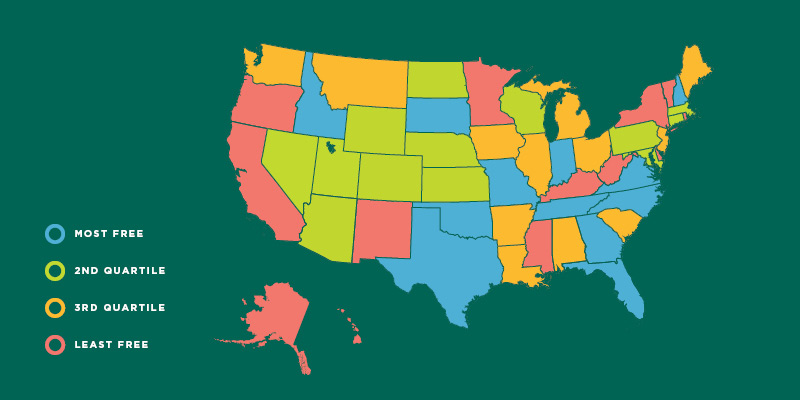 Read the Full Report
Read the Full Report Read the Full Report - U.S. Edition
Read the Full Report - U.S. Edition Download Dataset - Subnational
Download Dataset - Subnational Download Dataset - All Government
Download Dataset - All Government Download Full Dataset
Download Full Dataset Download Dataset - US Panel Dataset for Researchers
Download Dataset - US Panel Dataset for Researchers Read the News Release - Atlantic Canada
Read the News Release - Atlantic Canada Read the News Release - Canada
Read the News Release - Canada Read the News Release - United States
Read the News Release - United States
Eliminating interprovincial trade barriers would help economy grow by more than $6,000 per household
 Read the Essay - Towards a More Productive and United Canada
Read the Essay - Towards a More Productive and United Canada Read the Essay - Barriers to Entry and Productivity Growth
Read the Essay - Barriers to Entry and Productivity Growth View the Infographic - Potential gains from eliminating interprovincial trade barriers
View the Infographic - Potential gains from eliminating interprovincial trade barriers View the Infographic - Barriers to trade harm productivity and economic growth
View the Infographic - Barriers to trade harm productivity and economic growth Read the News Release
Read the News Release






